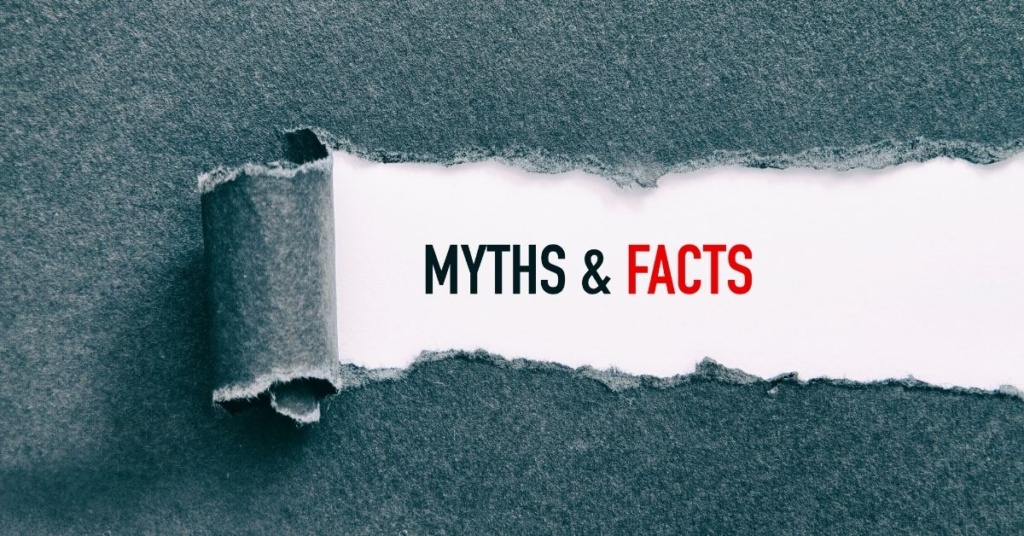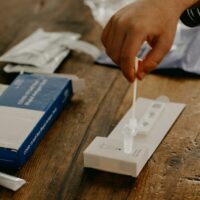Misinformation about COVID-19 has spread almost as fast as the virus itself. In an effort to inform our readers, Hoptown Chronicle asked the staff of the Christian County Health Department about the common questions and misstatements they have heard in response to the pandemic. They provided the following misconceptions, along with some clarification on the issues.

MYTH: CCHD makes $100 per COVID-19 test at our testing site and that is why the CCHD pushes testing.
FACT: We do not make any money on our COVID-19 tests. These tests are provided to the public for free and we aren’t making any money. In fact, we are more than likely spending money to offer the testing site when you consider staff time, medical supplies, etc.
MYTH: Most of our cases are in long term care facilities or from Fort Campbell.
FACT: Just a fraction of our total cases are in long term care facilities and from Fort Campbell (less than 20%). This means that the general public makes up the majority of our cases. That is why it is so important to continue to follow guidelines, and it is often those out in the general public in shopping centers, restaurants, gas stations, etc., who are not following guidelines.
MYTH: The state and health department numbers are always different, so no one really knows what’s going on.
FACT: There are several factors that can affect the differentiation in numbers. They include:
- One of the most common reasons is a delay in data. There are many channels information must go through when it travels from the local level to the state level, and often times this delay affects the consistency in numbers. The numbers aren’t necessarily “wrong” they are just delayed.
- Another common reason for the differences in numbers is access to data. Often times public health at the state level is getting Christian County information from other states, counties or locations where Christian County citizens may have tested positive. Ideally, all of that information should come through the Christian County Health Department, but sometimes, this info is passed directly to the state and we have to do a little digging to make sure we have accounted for this information as well. There are various other reasons for varied information, but in most cases, the discrepancy is due to a lag in time and gathering the updated information.
- RELATED: See the latest COVID-19 data based on the health department’s daily reports
- SUBSCRIBE: Sign up for Hoptown Chronicle’s daily newsletter
MYTH: I am in quarantine, but I am having no symptoms and I have gotten tested and have tested negative for COVID-19. I must be safe to go about my daily routine out in the community.
FACT: If you have been placed in quarantine by the Christian County Health Department, that means you have been deemed a direct contact for COVID-19 (within 6 feet of an infected individual for more than 15 minutes with or without a mask.) If you are in quarantine, you are expected to remain in quarantine for 14 days. The virus can take anywhere from two to 14 days to present symptoms in the body, and in many of our cases, individuals are asymptomatic, meaning there are no symptoms at all. If you are tested on day eight of your 14-day quarantine, have no symptoms, and receive a negative test, this doesn’t mean you are in the clear. The virus may not yet be detectable and could present itself on day 13 or 14 of your quarantine period. That is why it is so important to follow health department guidelines and stay in quarantine until you are released.
MYTH: I cannot be re-infected with COVID-19 once I have had it.
FACT: Individuals who have had COVID-19 can be re-infected if 90 days have passed.
MYTH: If an individual is tested more than once, and tests positive, they are counted as an additional case.
FACT: If an individual is tested for COVID-19, tests positive, and is tested again in a few days and tests positive again, they are still considered just one case. The additional positive tests are not counted as additional cases. However, if an individual tests positive, recovers, and after 90 days tests positive again, this individual would be considered a new case since they have been re-infected.
MYTH: The public health department is only working on COVID-19 and not providing regular public health services.
FACT: Although the health department has been heavily focused on COVID-19, we are still providing other public health services including, but not limited to, STD testing and treatment, Family Planning, Well Child Exams, vaccinations, other Clinical Services, Environmental Inspections, restaurant inspections, WIC, CPR Certifications, HANDS program, etc. Our services or appointments may be adapted to accommodate social distancing, and masks are always required, however, we are still providing these services, in conjunction with fighting the pandemic in our community.
MYTH: The health department and state officials are trying to elicit fear in the community.
FACT: It is the job of the state and local health departments to present the facts, data and educational tools to keep the public safe and informed. The information we release and the guidelines we suggest are there for the community’s protection. We are not trying to scare the public, but we are responsible for ensuring the public has the information and data to help protect themselves, their families, and prevent the spread of disease in our community.






